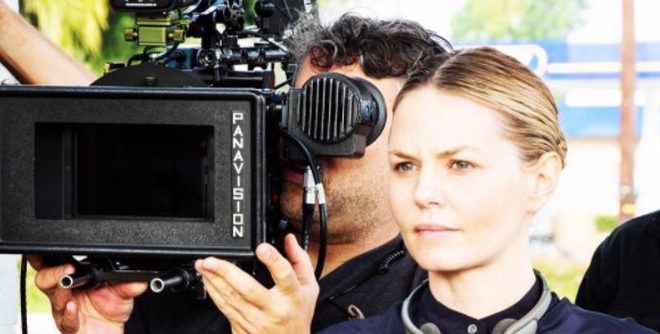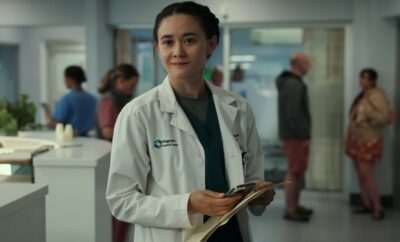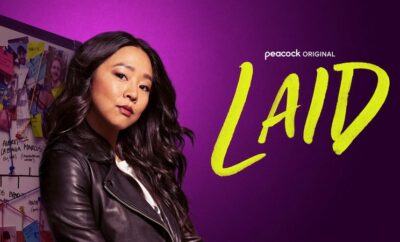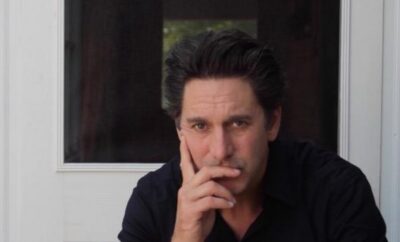
Interviews
Jennifer Morrison – Sun Dogs
By: Jamie Steinberg
Q) What was it about the film Sun Dogs that drew you to direct this picture?
A) There were so many things that drew me to the script. First of all, t’s always so hard to find great material so when you come across it it’s very exciting. Then, when you have the opportunity to option it or be a part of it you are even more excited. I think with this it was a couple things. There were so many beautiful characters. I loved all of the journeys the characters went on. I obviously loved Ned’s journey and I also really liked the overriding message of the film – this idea that we don’t always realize the impact we have on the people around us. The best thing we can do is be the best version of ourselves to help make the world a better place one day at a time. I felt this was a very subtle, beautiful way of expressing that idea.
Q) The film is quite moving!
A) Thank you so much! It’s one of those things where you go into a hole to make something for a year and you just dig in to help make it the best you possibly can. So, it’s so exciting when people have a positive reaction.
Q) How involved were you in the casting of the movie?
A) I’m very lucky because I have a great relationship with Tamara-Lee [Notcutt] who is the casting director I’ve worked with every time I’ve directed. She had actually been a part of the casting team when I was cast back in Warrior back in the day. I had known her from that and she has actually cast me in several short films after that. This caught my attention because I realized she just really knew what actors were in it for the love of the game. She really knew who was in it to make something of these roles. She and I have a great relationship so some of it was ideas that I came to the table with and some of it were ideas that she brought to the table. I didn’t know who Ned was going to be until I saw Michael Angarano’s tape and immediately he was just Ned. He embodied everything that I felt like I had imagined and I was super excited that he was willing to take this leap with me. Then, that was the first puzzle piece. Obviously, I really loved Allison Janney’s work and Ed O’Neill’s work. I thought, “Gosh, I hopefully have the reach to get to them!” Tamara being such an established casting director combined with a great script and great characters was what really gave me the opportunity to reach them. Then, for me, Melissa Benoist was a really exciting discovery because I wasn’t sure who was going to play Tally. I ended up having some Skype sessions with a bunch of actresses and she just had this incredible genuine and honest quality to her and I could picture her and Ned together in that situation. That’s how she found her place. Then, Xzibit was a whole other discovery! I had no idea that he had this beautiful soulful nuance performance in him. We had coffee to talk about the role and he told me how his dad was a marine and he talked to me about his life. We talked about his journey as a family and how he cared about this character. He brought the character to life just in a conversation in a way. He was so excited. Yes, I was picking and choosing the people I was aiming for, but I also felt like they found their way to it as well because each person brought something specific that they brought to the table.
Q) What are the different challenges you faced directing as opposed to acting?
A) It’s interesting. Certain things are very similar and certain things that are completely different. When I’m acting, I always do a ton of research. It’s partly why I was naturally gravitating towards directing. I was going to dive in and read all these memoirs and articles, come up with a hundred ideas for things and build as big of a world as possible to bring as many options as possible to set when I act. When you do that as an actor, it’s someone else’s job to decide what works and what doesn’t work and how that is going to fit into the visual world – to make all those thousands and thousands of decisions. Then, as a director I am doing similar types of research, but even more of it and it is on me to make those decisions. So, it’s like you’re picking everything down to the knife and forks on the tables and the lamps in the room and the color scheme and palate and everyone’s costumes, the whole look and vibe of everything. It’s purely the shear number of decisions you make on a daily basis. Also, it’s just knowing that there is no where to hide. Anything that goes wrong is definitely your fault. [laughs] So, you just know you are kind of exposed in that way and you have to do the best you can to surround yourself with incredible people who are the best at what they do so you have a support system to make as many great decisions as you can possibly make.
Q) Is it more challenging to direct your own feature film compared to something like a short or music video?
A) It’s been a different experience directing a feature compared to – Well, everything I’ve directed so far has been a very different experience. I feel like my feature and my first short (Warning Labels) were similar in a way because they were both my babies. I raised the money, I found the producers and brought the creative team together. I built those two projects from the ground up really just on my own. So, it really does rest on your shoulders in terms of if it goes well then great, you made the decisions. If it doesn’t go well then it’s also your fault. [laughs] So, those two felt similar. Then, I did a series of music videos along the way. I also wrote and directed that so it was my own in a certain way. The music label has their financing and their notes. The band has their notes. There is a different kind of process when you are also trying to include someone else’s vision and art into something in an answer to what really feels right for them as well so then it is collaborative in a different way. Then, this project that I just directed called Fabled for Refinery 29 was different than that because it was a digital pilot where I’m answering to what Refinery 29 wants and I’m answering to what the producers want. It’s a little bit more like directing a pilot where there are a lot of cooks in the kitchen and you’re just sort of trying to make sure everyone’s vision and heart for it are expressed in some way. Sometimes it is actually easier (in my opinion) to do my own thing since I really only have to answer to myself in that way. When you do have a bigger organization that you’re answering to there are guidelines to slide into, but you also want to save the quality and the integrity of how you saw it. There is a lot of balancing to make sure that everyone is happy with the end product.
Q) Talk about how the setting of the film plays such a significant role.
A) That’s what is interesting about the setting of the film. Early on there were a lot of discussions about what year we were going to set the film. I really like choosing a time to set a film because you get to be specific about that time period. I didn’t want to be aimlessly right now. I felt like by choosing actually that it was 2004, it was such a specific time for America. We’re just a few years from 9/11 and everyone is dealing with how much fear was providing the atmosphere of our culture in America because terrorism was something that had never touched American soil before in this way or at least on this level. It just changed the way that people perceived life and how afraid of certain things they were. I think that atmosphere of fear is something that we’re still dealing with since we’re still dealing with certain fallouts from that now in the world. For me, it was interesting to go back to 2004 and see where people’s head spaces were in that moment.
Q) You are a part of social media. Are you excited for the fan feedback you’ll receive to the movie?
A) Yeah, it’ll be interesting to see. I certainly hope that people can project themselves into these different characters and see themselves in those situations or relate to different things. Obviously, Ned is a character who reveres the military and knows how much of a sacrifice people make to protect our country and keep us safe every day. To me, that is a profound sacrifice that I don’t even know if I could express show grateful I am to be able to wake up and feel safe. So, that’s something that Ned obviously carries with him and really wants to be a part of in some way. Even though his character is not able to participate in the military, his heart for that heroic gesture lives in him. Like me, he wants to be a part of making the world feel safe again and the military in America is the ultimate representation of that.
Q) What is the message you hope viewers take away from watching Sun Dogs?
A) I hope when people see Sun Dogs that they walk away thinking about their lives and thinking about the ways they interact with people closest to them on a daily basis and feeling like maybe some of the things they didn’t realize were impactful are actually deeply impactful on the people that they love and care about and the people whose lives they touch on a daily basis. Sometimes we can be very quick to jump to conclusions and judge things a certain way and sometimes you just have to put ourselves in different shoes to gain a different perspective.





You must be logged in to post a comment Login